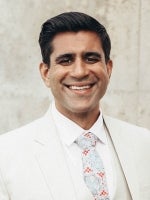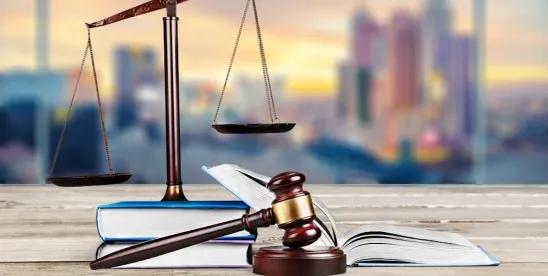Abraham Lincoln is most commonly celebrated for his presidency, but before he ever entered the White House, he built a formidable reputation as a trial lawyer in Illinois. Over nearly three decades in legal practice, Lincoln participated in thousands of cases ranging from land disputes to high-profile criminal trials. His methods, marked by diligence, clarity, moral integrity, and strategic storytelling, continue to serve as a benchmark for legal professionals today. For expert witnesses and attorneys alike, Lincoln’s legal legacy offers enduring wisdom that is remarkably applicable in modern courtrooms.
This article explores the essential takeaways from Lincoln’s legal practice that today’s legal experts can apply in litigation, testimony, and the pursuit of justice.
1. Ground Every Case in Facts and Relatable Narratives
Lincoln instinctively understood the persuasive power of narrative. Jurors respond not merely to legal argument but to stories they can understand and empathize with. Rather than delivering abstract legal points, Lincoln created vivid, humanized accounts of events.
In the 1858 trial of William “Duff” Armstrong, Abraham Lincoln secured an acquittal for the young man accused of murder by using a quiet but powerful piece of evidence: an almanac. The prosecution’s key witness, Charles Allen, claimed he had seen Armstrong strike the victim, James Metzker, with a weapon, by the light of the moon. Lincoln calmly introduced an 1857 astronomical almanac, which showed that the moon was low in the sky at the time of the alleged crime and would not have provided enough light for a clear view. Rather than directly attacking the witness, Lincoln let the facts undermine the credibility of the testimony, allowing the jury to visualize the impossibility of the claim on their own.1,2
Modern legal experts can adopt this same storytelling mindset. Presenting evidence in a coherent and relatable sequence helps jurors, who are often laypersons, stay engaged and comprehend technical material. In expert testimony, well-chosen metaphors and illustrative examples, combined with modern tools such as visual timelines and 3D reconstructions, enhance the narrative and anchor the facts.
2. Know the Opposition as Well as Your Case
Lincoln’s reputation as a masterful advocate stemmed from thorough preparation and a deep understanding of both sides of an issue. He famously said, “When I am getting ready to reason with a man, I spend one‑third of my time thinking about myself and what I am going to say—and two‑thirds thinking about him and what he is going to say.”3
For legal experts today, this skill is indispensable. Whether preparing for cross-examination or anticipating objections in court, a comprehensive grasp of opposing viewpoints equips attorneys and expert witnesses with the foresight to rebut challenges with precision.
3. Clarity Is Greater Than Complexity
Lincoln’s ability to explain intricate legal matters in simple, digestible language set him apart. He avoided jargon and spoke to jurors like neighbors rather than colleagues. This accessibility wasn’t a simplification of content, but rather a refinement of communication.
In his famed “tail-leg” analogy, he asked, “If you call a tail a leg, how many legs does a dog have?” When the answer came “five,” Lincoln corrected: “No, calling a tail a leg doesn’t make it one.” This humorous logic helped illustrate how labeling does not change reality, an important concept in legal definitions and disputes.4
Today, this principle is crucial for expert witnesses, who must often convey complex scientific or technical findings. A report that no one understands carries little weight. Precision combined with plain language increases comprehension, bolsters trust, and ensures a stronger influence on case outcomes.
4. Let Ethics Be Your Compass
Abraham Lincoln’s legal career was marked not only by his formidable courtroom skills but also by a deep-seated moral compass that guided his professional choices. On one occasion in Springfield, a man asked Lincoln to sue a widow to recover a $600 debt. Lincoln calmly explained that while his client might have a legal claim, the moral right belonged to the widow and her six fatherless children. He refused to take the case, even though he could have won, and offered instead free advice, urging the man to find an honest way to earn the money.5
Judge David Davis and others later observed that Lincoln would “never defend wrong,” even when it meant turning down fees. He believed some things, though legally right, were morally unjustifiable—a stance that reflected his principle of letting justice, not profit, define his work.
He famously wrote, “Resolve to be honest at all events; and if in your own judgment you cannot be an honest lawyer, resolve to be honest without being a lawyer.”6
For expert witnesses, this lesson is especially relevant. Taking on a weak or unethical case not only puts credibility at risk but also undermines the legal system. Expert integrity is not just about honesty under oath; it begins with the selection of cases. Upholding standards of objectivity, even under pressure, maintains both personal and institutional integrity.
5. Cross-Examination Requires Composure, Not Combat
According to historian Doris Kearns Goodwin in her biography of Lincoln, Team of Rivals: The Political Genius of Abraham Lincoln, Lincoln possessed an extraordinary gift of remaining composed in the face of hostility, a trait that increased his credibility.7 Lincoln’s courtroom strategy never hinged on aggression. He preferred to let faulty arguments collapse under the weight of their own contradictions. During cross-examinations, he guided witnesses into revealing inconsistencies through calm and logical questioning.
This approach was evident again in the Armstrong trial, where instead of discrediting the witness through confrontation, Lincoln discredited the testimony through evidence—the moon’s position—without undermining the witness’s dignity.
Modern legal professionals should emulate this restraint. Particularly for expert witnesses, resisting provocations and responding to cross-examination with calm, well-reasoned answers ensures that testimony remains credible and unshaken.
6. Diligence Is the Foundation of Legal Success
One of Lincoln’s most quoted legal dictums is: “The leading rule for the lawyer, as for the man of every calling, is diligence.” Lincoln’s work ethic was tireless. He often read case materials deep into the night and traveled for days to attend court sessions across Illinois. Legal historian Brian Dirck observes that Lincoln’s law office ran on long hours, careful records, and a steady stream of research and writing.8
For expert witnesses, this is perhaps the most transferable of all Lincoln’s habits. Each deposition or courtroom appearance is only as good as the preparation behind it. Thoroughly reviewing documents, anticipating questions, and validating findings all contribute to high-impact testimony.
Meticulous groundwork translates into professional confidence and, more importantly, influence.
7. Humor, Used Wisely, Humanizes the Law
Lincoln often used humor as a deliberate tool to connect with jurors and break the tension. His wit, however, was never caustic. It served to humanize legal proceedings and defuse confrontation.
In one notable case in Woodford County, Abraham Lincoln represented Mrs. Goings, a woman indicted for the murder of her abusive husband, a man known for his violent temper. The circumstances strongly suggested self-defense, and public sentiment largely sided with her. During a court session, when Mrs. Goings was suddenly discovered missing, Lincoln was questioned about her whereabouts. He replied that she had asked him where she could get a drink of water, and he had told her he’d always heard the waters of Tennessee were excellent.9 The implication was clear—she had fled, and Lincoln had subtly aided her escape without explicitly admitting so. Rather than harm his credibility, the quip disarmed the court and won laughter, showcasing how Lincoln’s humor and humility could defuse tension while reinforcing his deep sense of justice.
Today’s legal professionals may find themselves in adversarial settings, but tactful humor, when appropriate, can build rapport with juries and humanize even the most technical testimonies.
8. Maintain Ethical Distance from Difficult Clients
Not every case deserves your time. Lincoln demonstrated that a discerning legal mind should be matched by the ability to walk away when necessary. His unwillingness to support dishonest clients or frivolous claims cost him fees but preserved his reputation.
Law practitioners today face similar pressures. Early-career professionals may feel compelled to accept every engagement. Yet Lincoln’s example shows that discernment builds enduring careers.
Avoiding cases that compromise objectivity or involve questionable tactics ensures long-term credibility with both courts and attorneys.
9. Use Analogies to Clarify, Not Confuse
Lincoln’s analogies were memorable because they clarified, not complicated. Scholar Harold Holzer notes Lincoln’s ability to use humble, down-to-earth metaphors drawn from rural life to explain complex political ideas in ways his audience could easily grasp.
His famous critique of euphemistic language, comparing a "horse chestnut" to a "chestnut horse," called out those who distorted truth with language. During the first Lincoln–Douglas debate in 1858 (Ottawa, Illinois), Abraham Lincoln aimed at Stephen Douglas’ slippery rhetoric: Douglas was twisting words to support the expansion of slavery. Lincoln famously quipped that Douglas was using language so contorted that one could “prove a horse‑chestnut to be a chestnut horse.”10 In other words, you can label something however you like, but that doesn’t change its nature. The audience’s laughter at this pointed analogy showed how effectively Lincoln exposed the deceptive use of language.
In expert testimony, analogies can powerfully explain technical details. However, they must be grounded in truth and relevance. Misused, they risk misleading juries. Used as Lincoln did, they facilitate understanding.
Legal professionals should practice drawing parallels between technical data and everyday experiences—bridging gaps in comprehension without sacrificing accuracy.
Conclusion
Abraham Lincoln's legal career remains a goldmine of professional wisdom. His approach, marked by storytelling, integrity, plain language, diligence, and ethical discernment, offers a template for legal professionals across disciplines. Whether preparing testimony, presenting findings, or navigating the moral complexities of modern law, professionals can turn to Lincoln as a standard-bearer for how justice should be practiced.
The courtroom may have evolved with technology and legal complexity, but Lincoln’s principles endure. Among them is his timeless counsel to avoid unnecessary litigation: “Discourage litigation. Persuade your neighbors to compromise whenever you can. Point out to them how the nominal winner is often a real loser—in fees, expenses, and waste of time.”11 His words serve as a powerful reminder that true justice often lies in the wisdom to resolve conflict with fairness and restraint.
All of the views and opinions expressed in this article are those of the author and not necessarily those of The National Law Review.
References
- Abraham Lincoln Was a Self-Taught Lawyer—a Really Good One | TIME
- Abrams, D. (2018). Lincoln’s Last Trial: The Murder Case That Propelled Him to the Presidency, pp. 201–215.
- When I’m getting ready to reason with a... Abraham Lincoln - Forbes Quotes
- Tarbell, Ida M. The Life of Abraham Lincoln. New York: McClure, Phillips & Co., 1900.
- Burlingame, M. (n.d.). [PDF]. In Abraham Lincoln: A Life, Vol. 1, Chap. 9. Lincoln Studies Center, Knox College.
- Collected Works of Abraham Lincoln. (1953). Collected Works of Abraham Lincoln [Digital collection]. University of Michigan Library Digital Collections.
- Goodwin, D. K. (2005). Team of Rivals: The Political Genius of Abraham Lincoln. Simon & Schuster.
- Dirck, B. (2009). Lincoln the Lawyer. University of Illinois Press.
- Zall, P. M. (2009). Lincoln laughing: Humor as rhetorical strategy. Illinois History Teacher, 15(2). Northern Illinois University.
- Schrag, Z. M. (n.d.). Abraham Lincoln, first debate with Stephen A. Douglas at Ottawa, Illinois, August 21, 1858 (excerpt). Course materials for History 120, George Mason University.
Lincoln, A. (1953). Fragment: Notes for a law lecture (Vol. 2, pp. 134–135) [Digital edition]. In Collected Works of Abraham Lincoln (Sept. 3, 1848–Aug. 21, 1858). Rutgers University Press. University of Michigan Library Digital Collections.



 />i
/>i

